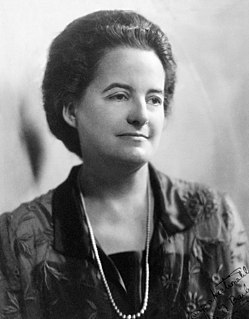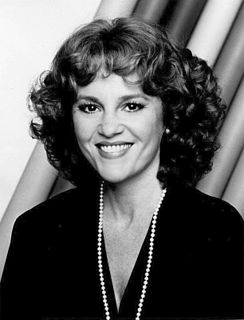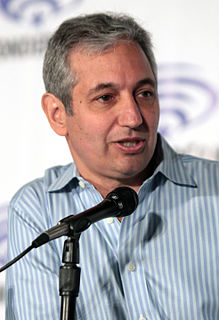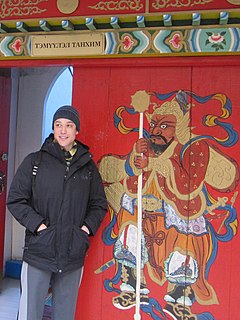A Quote by James M Strock
Many people become self-conscious when they communicate. Whether it's writing or speaking, they are consumed by anxiety. Self-consciousness is an impediment to what is required to serve an audience effectively. One's goal must be to achieve audience consciousness. To put oneself in their place, to recognize that the value of any communication arises from how it is received by them, not by what it means to the author. Rather than learning a multiplicity of rules for speaking, for example, I would suggest that a focus on serving one's audience will simplify and clarify everything.
Quote Topics
Achieve
Anxiety
Any
Arises
Audience
Author
Become
Clarify
Communicate
Communication
Conscious
Consciousness
Consumed
Effectively
Everything
Example
Focus
For Example
Goal
How
Impediment
Learning
Many
Means
Multiplicity
Must
Oneself
People
Place
Put
Rather
Received
Recognize
Required
Rules
Self
Self-Conscious
Serve
Serving
Simplify
Speaking
Suggest
Than
Them
Value
Whether
Will
Would
Writing
Related Quotes
I suggest that just as self-consciousness is the goal for all the subhuman forms of life, and as group consciousness, or the consciousness of the Heavenly Man, is the goal for the human being, so for him, also, there may be a goal, and for him the achievement may be the development of God consciousness.
If you're up there performing a song for the first time, it's as if you're hearing it through their ears. You become acutely self-conscious of the song in performance, so that's a good thing before recording. But I like to have some surprises for the audience; I don't want the audience to know everything that's going to be on the record, because these days, with the Internet, people become avid collectors of pre-knowledge.
I think you have to do the stories that interest you and hope an audience likes it, rather than doing stories that you think the audience will like, whether you like them or not. I think there has to be something that you find compelling and interesting, and then hopefully an audience will agree with you.
Speakers find joy in public speaking when they realize that a speech is all about the audience, not the speaker. Most speakers are so caught up in their own concerns and so driven to cover certain points or get a certain message across that they can't be bothered to think in more than a perfunctory way about the audience. And the irony is, of course, that there is no hope of getting your message across if that's all the energy you put into the audience. So let go, and give the moment to the audience.
We were in front of a live audience and I would be acting with the man who was playing my lover, and we used those words, and the audience would titter and laugh, and make me uncomfortable doing the scenes. ... I wanted to sort of stop and yell at them, "What's so funny? What's the matter with you people? Grow up!" It made me very self-conscious at times.
I never consciously place symbolism in my writing. That would be a self-conscious exercise and self-consciousness is defeating to any creative act. Better to get the subconscious to do the work for you, and get out of the way. The best symbolism is always unsuspected and natural. During a lifetime, one saves up information which collects itself around centers in the mind; these automatically become symbols on a subliminal level and need only be summoned in the heat of writing.
Regarding pushing the form, ideas interest me more than form. I think you can write a very subversive play in a three-act structure. The content makes the play. I feel the form is simply dressing, because ultimately, you want to communicate to the audience, and sometimes the best way to do that is to present a provocative idea in a format that is comfortable for them to receive. Then the idea will come through directly, right in solar plexus. After all, I want to make a living as an artist, and that means speaking to the audience in a form they can understand.
A puppet, for example, is just a piece of wood, a couple of rivets, but put them together, and if you know how to do it, and the audience's imagination joins in with this, then a miracle will come out of that machine. That is what we and the audience do in the theatre - we create miracles in that space.
I don't understand choreographers who say they don't care about the audience or that they would be happy to present their works non-publicly. I think dance is a form of communication and the goal is to dialogue with the audience. If an audience member tells me they cried or that the dance moved them to think about their own journey or a family member's, then the work is successful.
































